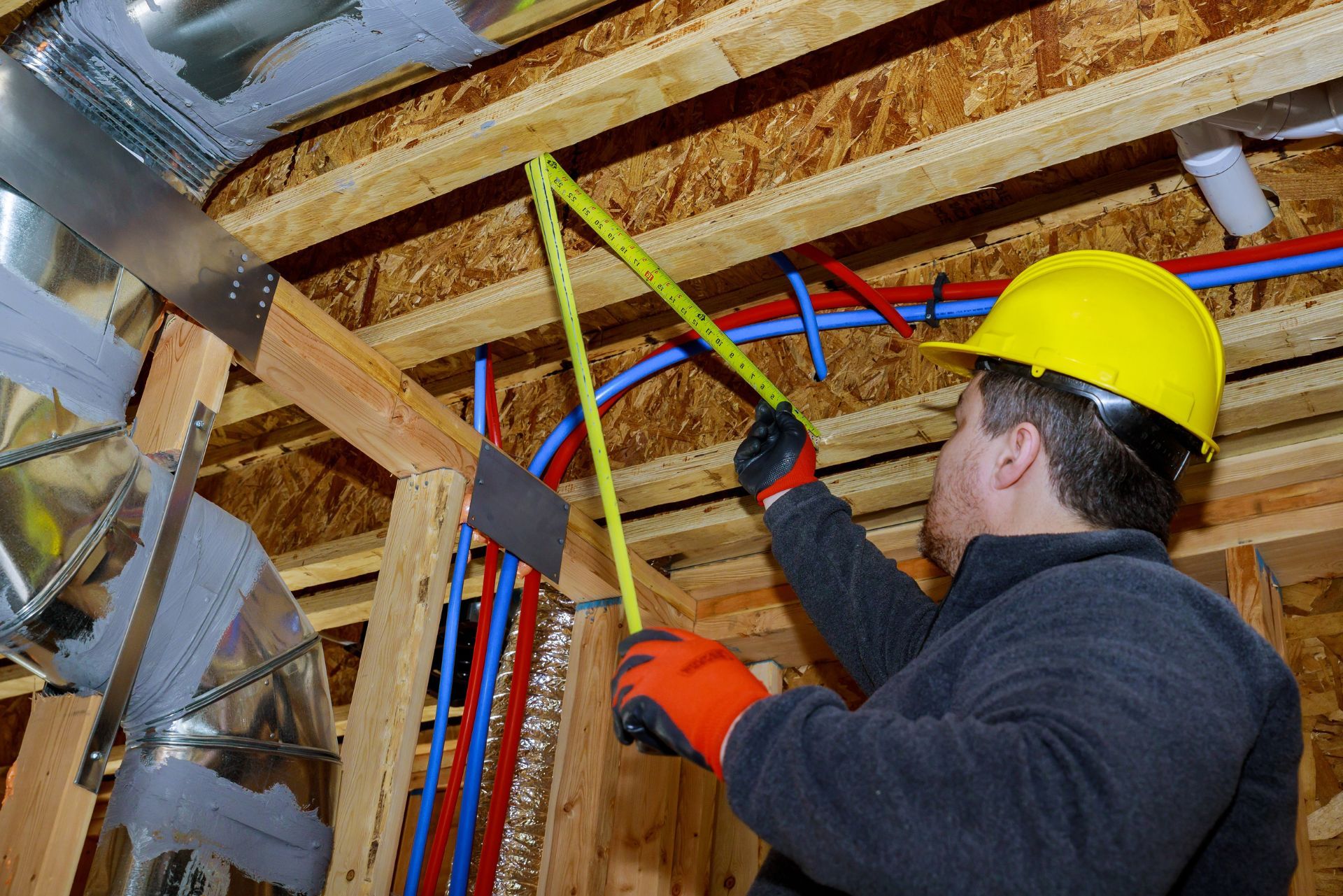
Top 3 Recommended Policies
Insulation contractors play a vital role in the construction and renovation industries, ensuring that buildings are energy-efficient and comfortable. However, like any profession, insulation contractors face unique risks that can lead to significant financial loss if not properly managed. This is where insurance comes into play. This ultimate guide will explore the various types of insurance available for insulation contractors in Connecticut, the importance of having adequate coverage, and tips for selecting the right insurance policy.
Understanding the Risks Faced by Insulation Contractors
Insulation contractors encounter a range of risks in their day-to-day operations. Understanding these risks is crucial for selecting the appropriate insurance coverage. Here are some common risks associated with insulation contracting:
1. Job Site Hazards
Working on construction sites can be perilous. Insulation contractors often deal with hazardous materials, heavy machinery, and various environmental conditions. Accidents can lead to injuries not only to the contractors themselves but also to other workers or bystanders. This risk necessitates comprehensive liability coverage to protect against potential lawsuits. Additionally, the nature of insulation work often involves working at heights or in confined spaces, which can further increase the likelihood of accidents. Proper training and adherence to safety protocols are essential to minimize these risks, but even with precautions in place, the unpredictable nature of construction sites means that contractors must remain vigilant at all times.
2. Property Damage
During the insulation process, contractors may unintentionally damage property. This could include damaging walls, ceilings, or even electrical systems. Such incidents can result in costly repairs and may lead to disputes with clients. Property damage insurance can help mitigate these financial burdens. Furthermore, the materials used in insulation can sometimes react adversely with existing structures, leading to unforeseen complications. For instance, moisture from insulation materials can cause mold growth if not properly managed, which can lead to significant health risks and additional remediation costs. Therefore, contractors must not only be skilled in their craft but also knowledgeable about the properties of the materials they work with to prevent such issues from arising.
3. Equipment and Tool Theft
Insulation contractors rely on specialized tools and equipment to perform their jobs effectively. Unfortunately, these items are often targeted by thieves, especially when left on job sites overnight. Equipment insurance can protect contractors from the financial loss associated with theft or damage to their tools. Additionally, the costs associated with replacing stolen equipment can be substantial, leading to project delays and potential loss of income. To combat this risk, many contractors are now investing in security measures such as surveillance cameras or GPS tracking devices for their tools. Moreover, establishing a routine for securing equipment at the end of each workday can significantly reduce the likelihood of theft and ensure that contractors can maintain their productivity without the added stress of lost tools.

The Importance of Insurance for Insulation Contractors
Insurance is not just a legal requirement; it is a critical aspect of running a successful insulation contracting business. Here are several reasons why having the right insurance coverage is essential:
1. Legal Compliance
In Connecticut, certain types of insurance are legally required for contractors. For instance, workers’ compensation insurance is mandatory for businesses with employees. Failure to carry the necessary insurance can lead to fines, legal penalties, and even the suspension of business operations.
2. Financial Protection
Insurance provides financial protection against unexpected events that can lead to significant expenses. Whether it’s an injury on the job site or damage to a client’s property, having insurance ensures that contractors can cover these costs without jeopardizing their business’s financial stability. Additionally, the costs associated with lawsuits can be astronomical, and having liability insurance can help mitigate these risks. It allows contractors to focus on their work rather than worrying about potential legal repercussions that could arise from accidents or disputes.
3. Enhanced Credibility
Clients are more likely to hire contractors who are fully insured. Having the appropriate insurance coverage demonstrates professionalism and a commitment to safety. This can enhance a contractor's reputation and lead to more business opportunities. Furthermore, many clients specifically request proof of insurance before they agree to hire a contractor, as it provides them with peace of mind knowing that they are protected in case of any mishaps. This not only helps in building trust but can also lead to referrals and repeat business, which are crucial for long-term success in the industry.
4. Risk Management
Insurance also plays a vital role in risk management for insulation contractors. By assessing potential risks and obtaining the right coverage, contractors can better prepare for unforeseen circumstances. For instance, specialized insurance policies can cover equipment breakdowns, which can be particularly costly in terms of both repairs and lost work time. Additionally, having a comprehensive risk management strategy that includes insurance can help contractors identify and mitigate hazards on the job site, creating a safer working environment for everyone involved.
5. Peace of Mind
Lastly, having insurance provides peace of mind for insulation contractors. Knowing that they are protected against various risks allows them to focus on their work and deliver quality service to their clients. This peace of mind extends beyond the contractors themselves; it also reassures their employees, who can work with confidence knowing that they are covered in case of accidents or injuries. In an industry where physical labor is a significant component, this assurance can lead to higher morale and productivity among the workforce.
Types of Insurance for Insulation Contractors
There are several types of insurance that insulation contractors should consider. Each type serves a specific purpose and addresses different risks associated with the industry. Here’s a breakdown of the most common types:
1. General Liability Insurance
General liability insurance is a fundamental coverage for insulation contractors. It protects against claims of bodily injury, property damage, and personal injury that may occur during the course of business operations. This type of insurance is essential for safeguarding against lawsuits and claims from clients or third parties. For instance, if a client trips over equipment left on-site and sustains an injury, general liability insurance can cover the medical expenses and legal fees that may arise from such incidents. Additionally, this insurance can also cover damages to a client’s property, ensuring that contractors are not left financially vulnerable due to unforeseen accidents.
2. Workers’ Compensation Insurance
Workers’ compensation insurance is required by law for most businesses in Connecticut with employees. This insurance provides coverage for medical expenses and lost wages for employees who are injured on the job. It is crucial for protecting both the contractor and their workers from the financial implications of workplace injuries. Beyond just covering immediate medical costs, this insurance can also provide rehabilitation services and long-term disability benefits for employees who may not be able to return to work immediately. This not only fosters a safer work environment but also contributes to employee morale, as workers feel valued and protected in their roles.
3. Commercial Auto Insurance
If insulation contractors use vehicles for business purposes, commercial auto insurance is necessary. This coverage protects against accidents, injuries, and property damage that may occur while driving for work. It is essential for contractors who transport materials or travel to job sites. In addition to covering liability for accidents, commercial auto insurance can also include coverage for theft or damage to the vehicles themselves, which is particularly important for contractors who rely on specialized equipment that may be stored in their vehicles. Furthermore, this type of insurance can provide coverage for employees who drive company vehicles, ensuring that all parties involved are adequately protected in the event of an accident.
4. Equipment and Tools Insurance
Another important type of insurance for insulation contractors is equipment and tools insurance. This coverage protects against loss, theft, or damage to the tools and equipment necessary for completing insulation projects. Given the significant investment that contractors make in their tools, having this insurance can be a financial lifesaver. For example, if a contractor's truck is broken into and valuable tools are stolen, equipment insurance can help replace those items without causing a major financial setback. This type of coverage often extends to equipment rented or leased as well, ensuring that contractors can maintain their operations without interruption.
5. Professional Liability Insurance
Professional liability insurance, also known as errors and omissions insurance, is particularly relevant for insulation contractors who provide consulting or design services. This insurance protects against claims of negligence, errors, or omissions that may arise from professional advice or services rendered. For instance, if a contractor incorrectly assesses insulation needs and the client faces significant energy loss as a result, professional liability insurance can cover legal fees and settlements. This type of insurance not only protects the contractor financially but also enhances their credibility and trustworthiness in the eyes of clients, as it demonstrates a commitment to professional standards and accountability in their work.
In addition to the primary types of insurance, insulation contractors may consider additional coverage options to further protect their business:
1. Equipment and Tool Insurance
This type of insurance covers the loss, theft, or damage of tools and equipment used in the insulation process. Given the high cost of specialized tools, this coverage can be a wise investment for contractors. Furthermore, many contractors rely on a variety of equipment, from spray foam rigs to blowers and safety gear, which can be both costly to replace and essential for completing jobs efficiently. Having this insurance can also provide peace of mind, allowing contractors to focus on their work rather than worrying about the potential financial impact of losing essential tools.
2. Professional Liability Insurance
Professional liability insurance, also known as errors and omissions insurance, protects contractors against claims of negligence or failure to deliver services as promised. This is particularly important for contractors who provide design or consultation services in addition to installation. In an industry where precision and adherence to building codes are paramount, even minor mistakes can lead to significant financial repercussions. By securing this type of insurance, contractors can safeguard themselves against potential lawsuits from dissatisfied clients, ensuring that their reputation and finances remain intact even in challenging situations.
3. Umbrella Insurance
Umbrella insurance provides an extra layer of protection beyond the limits of other policies. It can cover claims that exceed the limits of general liability or auto insurance, making it a valuable option for contractors looking to enhance their overall coverage. This type of insurance is particularly beneficial in an industry where accidents can happen unexpectedly, and legal claims can escalate quickly. For instance, if an injury occurs on a job site that leads to a lawsuit, umbrella insurance can help cover costs that exceed the limits of the contractor's primary liability coverage, ensuring that they are not left vulnerable to substantial financial losses. Additionally, it can provide coverage for various situations that may not be included in standard policies, offering a comprehensive safety net for business owners.

How to Choose the Right Insurance Policy
Choosing the right insurance policy can be daunting, especially with the various options available. Here are some tips to help insulation contractors make informed decisions:
1. Assess Your Risks
Before selecting an insurance policy, it’s essential to assess the specific risks associated with your business. Consider factors such as the size of your operations, the types of projects you undertake, and the number of employees. This assessment will help determine the types and amounts of coverage needed.
2. Compare Quotes
Obtaining quotes from multiple insurance providers is crucial. This allows contractors to compare coverage options, premiums, and deductibles. It’s important to look beyond the price and consider the quality of coverage and the insurer’s reputation in the industry.
3. Consult with an Insurance Agent
Working with an experienced insurance agent who understands the unique needs of insulation contractors can be beneficial. They can provide valuable insights, help navigate complex policies, and ensure that contractors have adequate coverage tailored to their specific business needs.
Understanding Insurance Costs
The cost of insurance for insulation contractors can vary widely based on several factors. Understanding these factors can help contractors budget effectively for their insurance needs:
1. Type of Coverage
The type of insurance coverage selected will significantly impact costs. For example, general liability insurance may be more affordable than professional liability insurance. Contractors should prioritize essential coverage while considering their budget.
2. Business Size and Revenue
Larger businesses with higher revenue typically face higher insurance premiums. Insurers often assess the scale of operations and the associated risks when determining costs. Smaller contractors may benefit from lower premiums but should still ensure they have adequate coverage.
3. Claims History
A contractor's claims history can also influence insurance costs. A history of frequent claims may result in higher premiums, while a clean claims record can lead to discounts. Maintaining a good safety record is essential for keeping insurance costs manageable.
Common Mistakes to Avoid
When it comes to insurance, insulation contractors can make several common mistakes that can lead to inadequate coverage or increased costs. Here are some pitfalls to avoid:
1. Underestimating Coverage Needs
One of the most significant mistakes contractors can make is underestimating their coverage needs. It’s essential to evaluate all potential risks and ensure that the selected policies adequately cover those risks. Failing to do so can leave contractors vulnerable to financial loss.
2. Ignoring Policy Exclusions
Every insurance policy has exclusions—situations or circumstances that are not covered. Contractors should thoroughly read and understand their policies to avoid surprises when filing a claim. Ignoring these exclusions can lead to significant financial repercussions.
3. Failing to Review Policies Regularly
As businesses grow and change, so do their insurance needs. Contractors should regularly review their insurance policies to ensure they still meet their requirements. Failing to update coverage can leave gaps that may not be apparent until it’s too late.
Conclusion
Insurance is a critical component of running a successful insulation contracting business in Connecticut. By understanding the risks, types of coverage available, and how to choose the right policies, contractors can protect their businesses from unforeseen events. Investing in adequate insurance not only safeguards financial stability but also enhances credibility in the industry. As the landscape of construction continues to evolve, staying informed about insurance needs is essential for long-term success.
In summary, insulation contractors should prioritize their insurance needs, assess risks, and consult with professionals to ensure they have the right coverage. By taking these steps, they can focus on what they do best—providing quality insulation services—while having peace of mind that their business is protected.
Contact Us
Phone
Locations
Connecticut Location
703 Hebron Ave., 3rd Floor, Glastonbury, CT 06033
North Carolina Location
436 East 36th St., Charlotte, NC 28205


